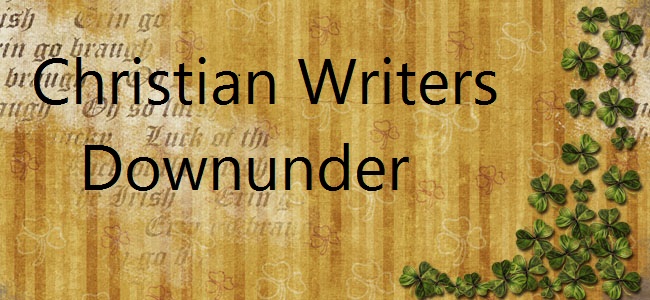by Jeanette O'Hagan
What makes a fantastic story? Great characters? Snappy dialogue? A breath-taking plot? Fresh, powerful writing? Heart warming or heart wrenching themes?
Yes, all of these, but also, I would argue, a memorable setting. Sherlock Holmes and the foggy streets of nineteenth century London, Anne Shirley and the picturesque countryside of Prince Edward Island, Harry Potter and whimsical magic of Hogwarts, Dorothy and the yellow brick road - is it possible to imagine one without the other?
 |
| Ruhanna's Flight (Painting by J O'Hagan) |
Setting - time and place - moulds characters and plot. It adds a sense of concreteness or reality to both people and events.
Now, I've written about world-building before in Building Worlds, but today I thought I'd drill down from the broad horizons to the nitty gritty of place. How can we, as writers, recreate or create a place in time? How do we choose where our story happens? What tools can we use to do it?
Real or Everyday Places We Know
A common strategy is to write what we know. Jane Austen, L. M. Montgomery, Charles Dickens, Toni Morrison, Trent Dalton, Paula Vince or Rose Dee all use settings they know (or knew) intimately. Memoir and travel writers like Alan Marshall, Ruth Bonetti, Hazel Barker also write of places they've been.
There are clear advantages in choosing a setting that is familiar to you as you can draw on your own memories and experiences. And while such settings may seem mundane - they may be exotic or different to other readers, while people from that location can enjoy seeing their own place brought to life with all its quirks and idiosyncrasies. One of the clear attractions for me in watching the recent ABC series Harrow was seeing Brisbane brought to life on the small screen.
Even so, it is necessary to do your research, to check on details you may not know or perhaps have forgotten.
In an (unpublished) essay I wrote about my childhood in Africa, I describe arriving in Durban. I drew on clear memories as a ten-year old arriving in port, of a clock tower, of being rushed through customs so we didn't miss our berth on the steam train which would take us on the long journey to Zambia. What I didn't remember was the distance between the dock and the train. Looking at maps, old photos, and checking the details with my mother revealed a short rushed car ride to get to the station.
On the other hand, Adele Jones set her near science-fiction in Brisbane. She revisited the area and traced Blaine Colton's steps along Kangaroo Point and South Bank To get the timing right as he tries to avoid capture and find answers.
As well as visiting the actual places in your locale, you can make use of resources like local museums, google maps, photographs, local books and histories, memories of family and friends.
If you are setting a story in an environment you know well, remember to bring the place to life, to capitalise on the unique character of people and place, the things that irritate you and the things you and others love about the place, the contrasts, the rivalries, and aspirations as well as weather, seasons and natural and architectural features.
Exotic and Distant Places
But what if you want to set your story in a place you don't know well? Kate Morton, Di Morrissey, Meredith Resce, Amanda Deed, Nola Lorraine bring to life places that are distant to them either in time or place or both. This adds a whole new level to research. How do we recreate a bygone era or an exotic place we have never been or may only have visited briefly. Travelling to the setting would be ideal but that's not always possible.
Reading books (fiction and nonfiction) and watching movies or TV shows set in the country can help. As can diaries and travel blogs. Geraldine Brooks read diaries and court transcripts to get the voice of her seventeenth century character is Caleb's Crossing. When writing the sailing scenes in a couple of my stories (admittedly in my fantasy world), I watched you-tube videos of sailing craft to hear the sounds as well as drawing on my different sailing adventures in the past. Once again, maps, google earth, images, magazines, music, historical accounts, virtual tours can all be useful as can museums with everyday artefacts and re-enactments of events. Having beta-readers with some knowledge of the place or era might also be advisable, though in the end, you need to decide the vaule of any feedback you receive.
A reader criticised Night Witches by Mirren Hogan (a fictional story based on the female Russian bomber pilots in World War II) for the inaccurate timing of the train journeys, even though Mirren had based the journey on a detailed reading of the diary accounts of the actual women. The reader was basing her estimation on modern train journeys, not taking in account the wartime conditions and that the trains were often shunted aside to let more important troop transports to pass.
 |
| World Under Construction - Glittering Caverns |
It is important to avoid glaring mistakes if at all possible, but also important not to allow the search for accuracy to suffocate the characters and stories. And remember, to avoid stereotypes or generalisations that produce two-dimensional characters. Drill deeper, look for exceptions or little know facts. Be creative.
Places We Make Up
And then there are imaginary places, like C S Lewis's Narnia, J R R Tolkien's Middle Earth, or Lucas' Star Wars Galaxy, or Lynne Stringer's Verindon or my own Nardva - worlds conjured up in over-fertile imaginations.
Creators of such worlds draw on elements of the real world to bring them to life. Much fantasy draws heavily from Tolkien and Medieval European societies. There is a balance in making the world with significant differences (customs, language, magic or science) while being consistent enough to it's own rules and realities to maintain the suspension of belief.
But, if we are writing fiction, even the most contemporary of books will have made up elements - the characters for one, perhaps a house, or a street or even a town or village. The question is, how do we bring these figments of our imagination to life.
 |
| Work in Progress - Tarka |
One way is to extrapolate from real life. To use real places as a stepping stone to the imaginary. For instance, George R R Martin's Westeros is roughly modelled on England and takes inspiration from the War of the Roses for its political machinations. Umberto Eco, in Name of the Rose, used a real monastery for his fictional one, and even paced the rooms and corridors to ensure the dialogue matched with the time it took to get from one room to the other. When I wrote my short story Maroon Sanctuary (published in God's of Clay anthology), I set the story deep below the icy crust of an icy ocean moon - and spent many hours working out how that would work by gathering information on the icy ocean moons in our own solar system.
With fictional worlds, there are no maps, no building plans, no photos to draw on (except as inspiration). It helps to make one's own - even if they are but rough sketches. I used Minecraft to build the Golden Palace of Tarka (in the Akrad's Legacy series) and the Glittering Caverns (in the Under the Mountain series). It was one thing to imagine rooms or tunnels in my head, but it added a whole different dimension fitting these places together in 3-D. I'm currently painting characters and places from my stories, which again adds to my understanding of my world.
 |
| Rough sketch of Golden Palace of Tarka |
While we often make a separation between contemporary, historical and speculative fiction there are clear cross overs. In contemporary fiction we often make up places to supplement reality and in speculative fiction we draw from what we already know to make a new reality.
I'd love to hear how important place is to the story you're writing and what research and tools you're using to bring that setting to life.
Images Copyright Jeanette O'Hagan. All rights reserved.Jeanette O'Hagan has spun tales in the world of Nardva from the age of eight. She enjoys writing fantasy, sci-fi, poetry, and editing.
Her Nardvan stories span continents, millennia and cultures. Some involve shapeshifters and magic. Others include space stations and cyborgs.
She has published over forty stories and poems, including the Under the Mountain Series (5 books), Ruhanna's Flight and Other Stories, Akrad's Children and Rasel's Song, the first two books in the Akrad's Legacy series.
Jeanette lives in Brisbane with her husband and children.
and receive a free short story, Ruhanna's Flight.

































